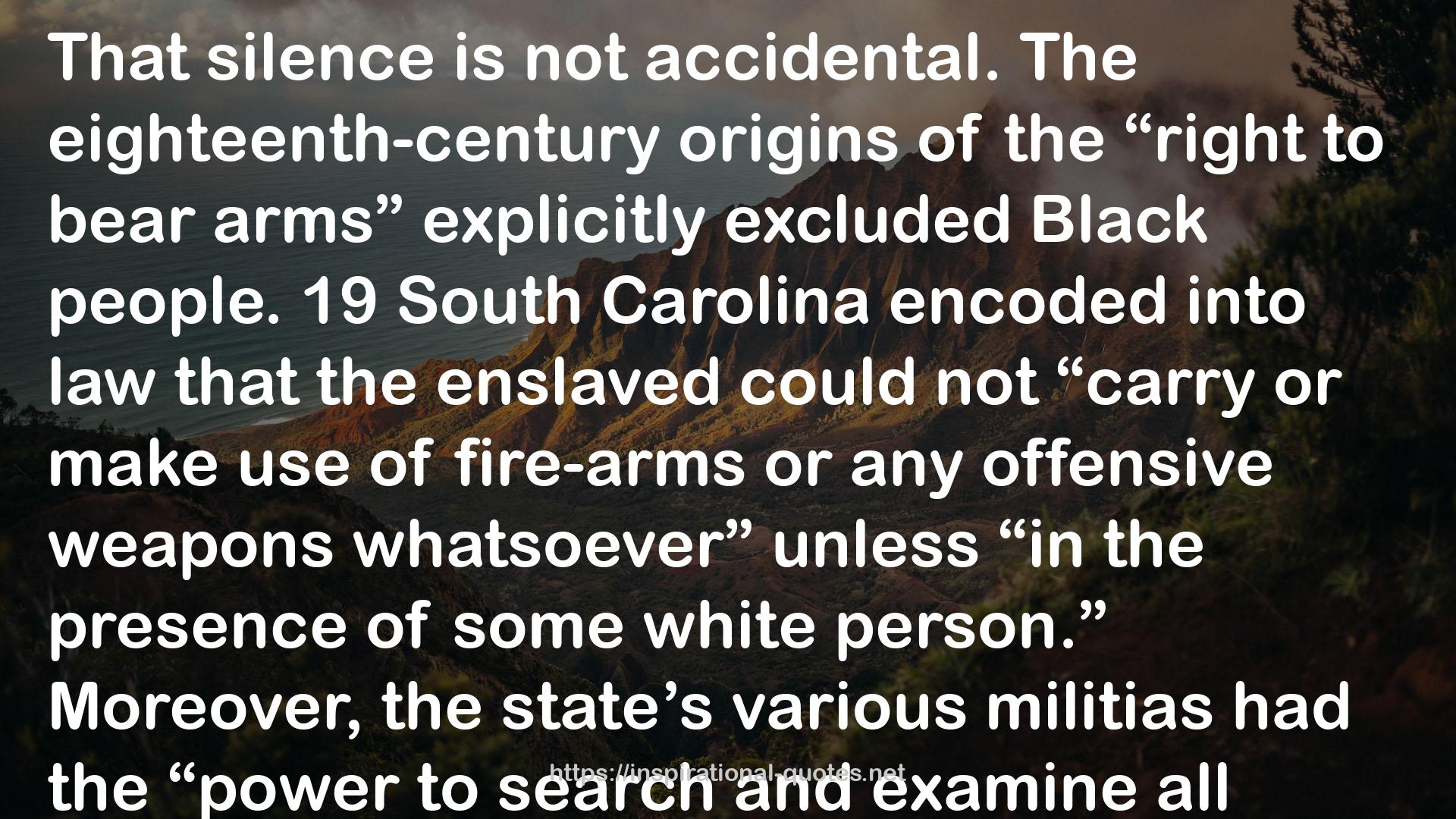" That silence is not accidental. The eighteenth-century origins of the “right to bear arms” explicitly excluded Black people. 19 South Carolina encoded into law that the enslaved could not “carry or make use of fire-arms or any offensive weapons whatsoever” unless “in the presence of some white person.” Moreover, the state’s various militias had the “power to search and examine all negro-houses for offensive weapons and ammunition.” In Delaware, there could be no valid earthly reason that any “bought Servant, or Negro, or Mulatto slave … be allowed to bear Arms.” Georgia was even more direct. Not only were Blacks forbidden from owning or carrying firearms, but white men were required to own “a good gun or pistol” to give them the means to “search and examine all negro houses for offensive weapons and ammunition.” The distinction was clear: “Citizen( s) had the right to keep arms; the slave did not.” 20 "
― Carol Anderson , The Second: Race and Guns in a Fatally Unequal America
